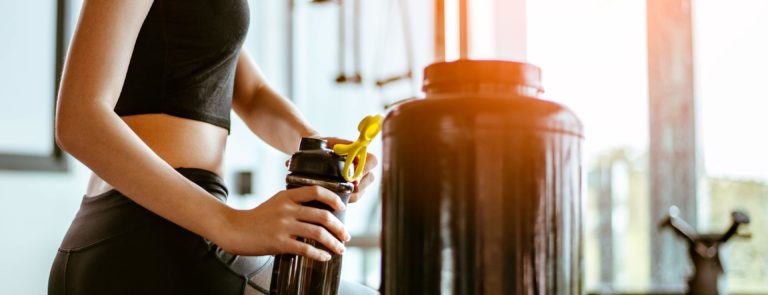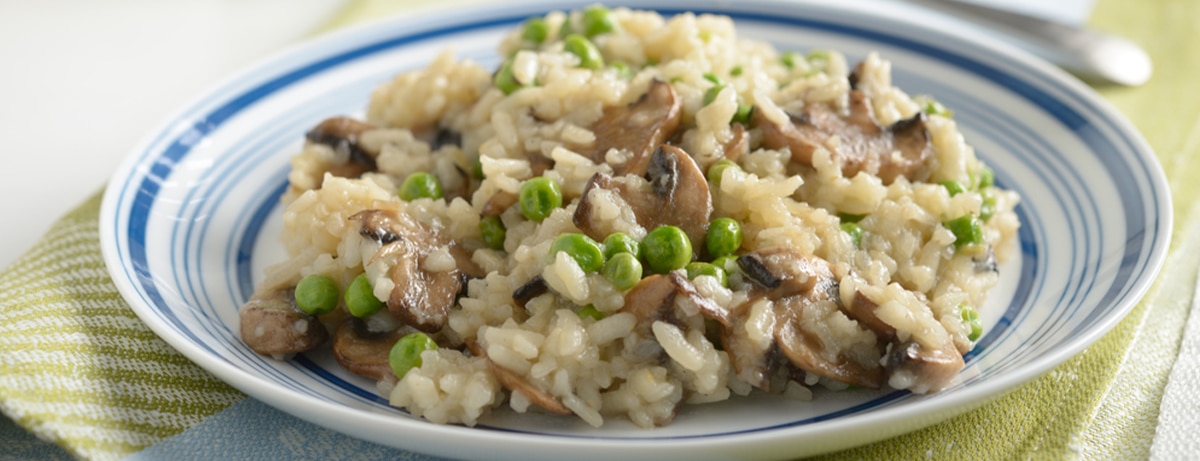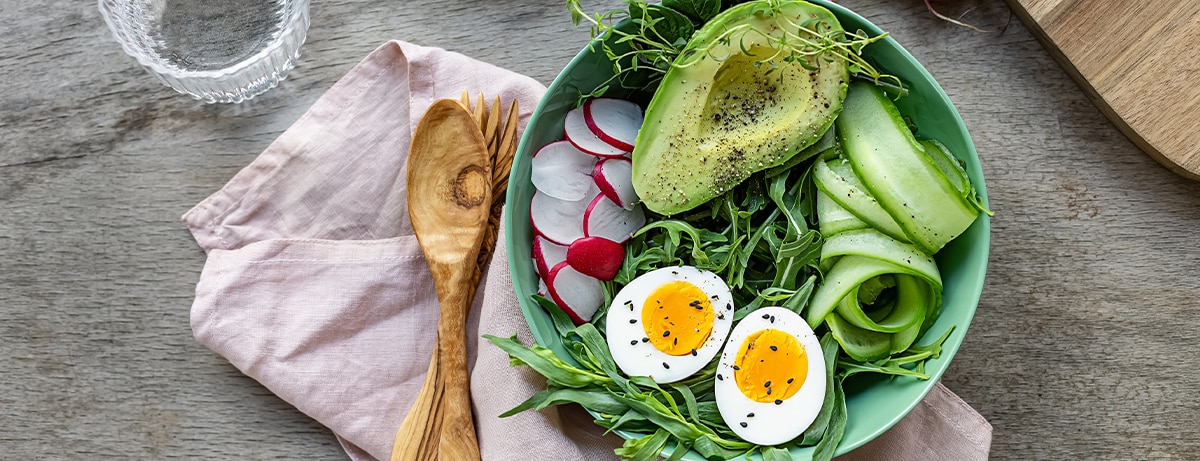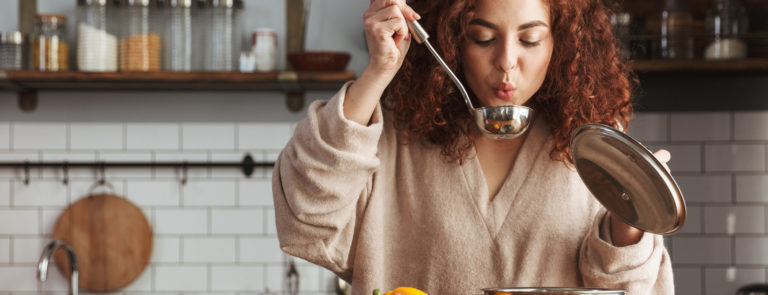10% off £35
10 best protein powders & the different types

Protein powders and other sports supplements have hit the market in a big way, with more and more people investing in their health and athletic performance.
But with the market being so competitive these days, it's difficult to know what you’re buying, which protein powders are better or if you even need it.
When you are exercising or training, it is especially important that you get the protein you need to maintain your muscles as physical activity can “damage” them. An easy way to do this is to incorporate protein powder into your diet.
But what is the best protein powder, and which one is right for you? We’ve put together a guide to give you all the information you need to know about the different types of protein powder, their benefits and how you can pick the perfect one for you.
In this article, we’ll explore
- What protein is
- Why you need protein
- How much you need
- What protein powder is
- Pros and cons
- The different types of protein supplements
- 10 of the best protein powders
- FAQs
What is protein?
In many ways it is protein that makes us who we are.
Protein is needed to help our body function. It’s a macronutrient making up most of the body – your muscles, bones, ligaments and skin are made of proteins.
Twenty different amino acids form the building blocks of protein. Eleven of them are created inside the body, while nine can only be found in foods.
The latter are called ‘essential amino acids’.1
Foods that offer all nine essential amino acids in roughly balanced proportions are called ‘complete proteins’, and include eggs, fish, dairy and a few plant foods, for example quinoa and soya.2
Summary
- Protein is a macronutrient that helps your body grow and repair
- Twenty different amino acids form the building blocks of protein
- Eleven of them are created inside your body, while the other nine are found in foods
Why does my body need protein?
All of your cells and tissues contain protein. It’s vitally important for the growth, repair and maintenance of your body’s health.
Protein provides the body with approximately 10 to 15% of its dietary energy and it is the second most abundant compound in the body, after water.
A large proportion of this will be muscle (43% on average) with significant proportions being present in skin (15%) and blood (16%).3
So, quite simply, your body needs protein to stay healthy and operate in the way it should.
Do I need protein powder?
Even if you don’t exercise, you will need to consume protein.
Fortunately though, most of us will get enough protein - around 0.75g per kg of body weight - by consuming a healthy, balanced diet.
However, some people can benefit from increasing their protein intake, and protein shakes/protein powders provide a quick and easy way to do so.
How much do I need?
The amount of protein needed is based on the amount or type of activity you are doing and is measured per gram per kg of your body weight.
This means a short, petite person with a sedentary lifestyle e.g., desk job will need significantly less protein than a tall, heavier set person who plays team sports.
If you choose to increase your protein intake, you can do this in a few ways.
One way to consume more protein is by simply increasing the amount of protein you eat at mealtimes, with foods like lean meat, soya products, wholegrains, legumes, beans, fish, etc.
Handpicked content: The best high protein snacks
Another way is to use protein powder or high-protein meal replacement shakes to quickly top up your protein.
Of course, you can always do both if you want to seriously boost your protein intake, it all depends on how much you need.
What are protein powders?
Protein powders are condensed sources of protein which commonly come from animal or plant foods, such as dairy, eggs, rice or peas. They’re available as shakes, bars and capsules.
You can legally buy them over the counter or online. The idea is that users take them before, during or after exercise and training.
They can also be taken with meals to increase protein intake or between meals as a high protein snack.
However, the NHS states that your protein intake can be increased by simply adding foods such as red meat and poultry, eggs, dairy, beans or tofu to your diet.4
The Department of Health advises that adults should try not to consume more than twice the recommended dose of protein, which is 55.5g for men and 45g for women.5
Are there complete protein powders?
Yes. The general idea of protein powders is to give your body an easy-to-digest protein that it can put to work straight away.
The popular complete proteins are:
- Whey protein powder
Whey protein is a combination of milk proteins, which is produced as a by-product of the cheese making process.
- Casein protein powder
Much like whey protein, casein comes from cow’s milk. You can usually naturally find it in milk and cheese products.
Complete vegan protein powders
- Pea protein
If you’re on a vegetarian or vegan diet, pea protein is a great way of getting the protein your body needs.
- Brown rice protein
Brown rice protein is another popular choice for vegans and vegetarians.
Brown rice protein has an impressive amino acid profile, providing a complete protein source with all of your essential amino acids, so it’s a great source of protein for vegans.
- Hemp protein
Hemp protein is taken from the cannabis plant. It doesn’t contain any THC, the psychoactive compound found in marijuana, but it’s a great source of protein.
Handpicked content: Your ultimate guide to plant based protein
What are concentrated, isolated and hydrolysate proteins?
There are also three variants of proteins; concentrated, isolated and hydrolysates.
- Protein concentrates - Protein concentrates are produced by extracting protein from whole food using heat and acid or enzymes.
- Protein isolates
- Protein hydrolysates - Hydrolysates are absorbed more quickly by your body and muscles. Protein hydrolysates are produced when acid or enzyme structure is heated further, which breaks the bonds between amino acids.
Which is the best protein powder for me?
Picking a protein is entirely a personal choice, based on your goal and dietary requirements.
For example, it’s wise to choose a higher calorie ‘bulking’ protein powder if you’re looking to put on weight and muscle, whereas if you want to lose weight, a low-cal diet protein powder would be a lot more suitable.
Use our guide below to find out which protein supplement could help you reach your goals.
The best protein powder for you will depend on your lifestyle, exercise and nutritional needs – there is no one size fits all.
You may need to try a few different protein powders before you find the one that works best for you.
| Complete | Incomplete |
|---|---|
| Whey | Rice |
| Casein | |
| Hemp | |
| Soy | |
| Pea |
Whey protein powder
Whey protein originates from dairy milk and is a by-product which is created during the cheese-making process.
Whey comes in a number of different flavours, including vanilla, strawberry and chocolate to name but a few. So you will easily be able to find one which suits you.
This popular protein supplement is available in different ratios and diet/lean variants.
You can get diet whey protein powder which is specially formulated for anyone that is trying to limit their calorie intake.
Casein protein powder
Casein is also produced from the production of milk, but this process can concentrate or isolate the protein found in milk, from the carbohydrates and fats.
Casein is the solid curds that are released from milk during the process.
Vegan protein powder
As both whey and casein protein come from dairy milk, they are unsuitable for vegans.
However, if you are vegan, fear not – there are plenty of vegan protein powders available so you will not need to go without.
Instead of being made from whey or casein, sources of vegan protein include grains, legumes and seeds.
Soy protein powder
Soy protein is made from soybean flakes (legume) that have had their fat removed and washed in alcohol or water to remove their dietary fibre and sugar.
Hemp protein powder
Hemp protein powder is made from pressed and ground hemp seeds, which when processed this way, have less fat than whole hemp seeds.
Rice protein powder
Made from, well, rice!
Pea protein powder
Turns out our humble petit pois packs an impressive amount of protein!
Pea protein powder is usually sold in isolate form as the yellow peas.
Plant-based combinations
To create a complete protein with rice protein powder, combine it with another plant-based protein.
Go on, make your own protein pick ‘n’ mix by mixing the following:
| Seed | Legume | Grain |
|---|---|---|
| Hemp | Pea | Rice |
| Soya |
10 of the best protein powders
10 of our top protein powders are...
It is a complete protein, containing all nine amino acids in a blend of isolate whey powder, concentrate whey powder and hydrolysed whey protein.
It is also low in both fat and sugar, making it one of the best whey protein powders available.
Key features
- Contains CLA and green tea
- High fibre
- Suitable for vegetarians
- Contains probiotics
- One serving = 12g protein
What our customers say
Nataliast07 - Buying it for a year now – 5/5 stars
“Excellent taste. Easily mixes with water. I love adding it to my morning porridge. Chocolate flavour is also super delicious. Great value for money.”
Optimum Nutrition Gold Standard 100% Casein contains 24g of slow digesting micellar casein in each serving.
It contains naturally occurring branched chained amino acids BCAAs leucine, isoleucine and valine which are not produced by your body.
Key features
- Slow digesting
- 24g protein per serving
- Only 0.7g fat
What our customers say
BIG AL - 5/5 stars
“Very easy to mix, no lumps, unlike some powders. I chose the chocolate flavour, great taste. One tub lasts a month so very good value.”
Helens290 - Very tasty – 5/5 stars
“Mixed it with less water than it said and it made a lovely mousse like consistency"
PhD Diet Whey Powder is a low-calorie protein supplement which contains just 91 calories per serving. It is also low in sugar.
This is one of the best protein powders for women and men following a nutritional plan for those wanting to limit their calorie intake.
Key features
- Low sugar
- 91 calories per serving
- Contains CLA, green tea extract and L-Carnitine
- 17g of protein per scoop
What our customers say
UmaM - Tasty protein powder and chocolatey. – 5/5 stars
“Tasty protein powder that is really luxurious. I drink this with a bit of almond milk for a creamy low-calorie drink. I love be taste and will be buying this again when I run out.”
Mack – Perfect – 5/5 stars
"Tastes so chocolatey and for the low calories it’s a must buy literally tastes so good on anything!"
Vega Clean Protein is made from a blend of premium plant-based protein from sources like hemp, pea and pumpkin which combine to create a high-quality amino acid profile.
It tastes great and is easily mixed into protein shakes and smoothies.
This plant-based protein powder contains just 140kcal per serving and is very low in sugar.
Key features
- Low sugar
- 140 calories per serving
- 25g of protein per serving
- Non-GMO
- Suitable for vegetarians and vegans
What our customers say
DSF1 - High protein content and tastes good – 5/5 stars
“Good protein content for plant-based protein powder. Nice vanilla flavour without being overly sweet. Not too many added ingredients too. Mixes well in smoothies.”
Freddy01 - Nice vanilla flavour, not too sweet – 5/5 stars
“This is my go-to protein powder now. Taste isn't overly sweet or overpowering like other ones I have used before. Reasonable price for the amount you get in each bag.”
Another one of the best protein powders if you’re looking for a vegan friendly alternative, is this.
Made from organic cold pressed hemp seeds for a natural boost source of plant-based protein, without any other ingredients or chemicals.
Key features
- 72 calories per serving
- Organic
- Contains manganese, iron and zinc
- 10g protein per serving
- Gluten free
- Suitable for vegans and vegetarians
What our customers say
EmmaRight – New fave vegan protein – 5/5 stars
“I was sceptical about this given my track record of vegan protein, but I absolutely LOVE it in my smoothies / breakfast smoothie bowls. It doesn’t have the foul taste or smell that others often have. Definitely would recommend.”
Sukvinder – Great product – 5/5 stars
“A very good vegan protein which you can add to anything and tastes great
Looking for the best diet protein powder to help you keep on track with your health goals? Another ideal option is this strawberry flavoured shake from USN.
Designed for use as a meal replacement, it is a super convenient way to get your protein fix.
But if you’re not as keen on having a drink for a meal, don’t fear. This works equally as well as a protein supplement to your regular nutritious meals.
Key features
- 2g fat per serving
- 25g protein per serving
- Contains Chromium Picolinate, L-Carnitine, Selenium and Boron
What our customers think
Fiona - Great taste and meal replacement. – 5/5 stars
“I've been using this for over a year now and love it. I add fresh strawberries and ice to it which makes it creamier. I agree with previous reviews that the packaging is excessive and could be reduced as the tub is only half full.”
Chris 004 – My Favourite Diet Shake – 5/5 stars
“I have used this before but couldn't find any at my usual shop. I checked H&B online and saw this at a great price. Ordered it immediately. My favourite diet shake! Taste great too!”
If hemp protein powder doesn’t tickle your fancy, don’t worry. Pulsin have a range of other vegan protein options just like this one – pea protein powder!
In a delicious chocolate flavour, this protein powder is perfect for using in bakes and shakes.
Key features
- No added sugar or fillers
- Contains zinc and iron
- 17g protein per serving
- Suitable for vegans and vegetarians
What our customers say
mrob - Delicious, not too sweet and high protein – 5/5 stars
“This is one of two protein powders I can drink without feeling like I'm drinking paint stripper. It's actually really yummy, not too sweet, and high protein. Recommend!”
EllenC - Pulsin chocolate protein powder – 5/5 stars
“Really smooth protein powder, tastes delicious and has one of the shorter ingredient lists for a vegan powder.”
Next up in our list of the best protein powders, is this one from Precision Engineered.
Another popular whey protein option, this one is natural flavoured so you can add it to pretty much any meal you like – savoury or sweet!
What our customers think
Anonymous – Love this product – 5/5 stars
“Excellent product, I usually mix it with yogurts, it's delicious, great consistency and taste. Highly recommend”
Carolinyxz – Very good – 5/5 stars
“One of my favourite proteins. I've tried different flavours but natural is best for me as I can mix it with any other flavours and it is still slightly sweet.”
Brown rice protein is another natural, vegan protein powder that is suitable for a vegan diet. Made from 100% wholegrain brown rice concentrate, all you’re getting here is 81% protein without any other nasties – what’s not to love?
Key features
- High digestibility
- No added sugar or sweeteners
- 8g protein per 10g serving
- Suitable for vegetarians and vegans
What our customers think
Jenny Br - Fab rice protein powder – 5/5 stars
“Fab protein powder. Use it daily in my porridge with fruit. It has minimal taste (especially compared to others) that makes it very flexible"
Mystery shopper 01 - Not for the taste, but great quality – 5/5 stars
“A lot of people would complain that doesn’t taste good, but I think they should think of this as a medium to combine with tasty food and not to use alone. If you want chocolate flavour go for one like that. But this if you want great protein (81%!!).
With an excellent amino acid profile, low sugar content and delicious taste, last up in our top 10 picks is the Fit Whey Chocolate Protein Powder from Women’s Best.
Ideal for a tasty source of protein in a shake or even in your porridge.
Key features
- 110 calories per serving
- 23g protein per serving
- 60% whey protein isolate
- 35% whey protein concentrate
- Contains lecithin extracted from sunflowers
What our customers think
Anonymous – Lovely – 5/5 stars
“Very sweet but lovely with berries and almond milk. I have tried lots of these and think this one is the best.”
Anonymous - The best protein shake I’ve ever tried! – 5/5 stars
“Delicious taste! It’s very easy to mix and it doesn’t leave lumps”
You also asked...
- Protein concentrates
Protein concentrates are produced by removing protein from whole food using heat and acid or enzymes.
- Protein isolates
Isolates work in very much the same way. However, there is an additional filtering process that removes more fat and carbs, which further concentrates the protein.
- Protein hydrolysates
Protein hydrolysates are produced when acid or enzyme structure is heated further, which breaks the bonds between amino acids.
Yes! Although most recipes will point you towards whey powders, you can use any of the above protein powders to make yummy protein-stacked pancakes, protein cookies and so much more.
Protein powder can be used to make shakes and smoothies, which can be consumed as a snack or as a meal replacement.
And it can also be added to foods such as pancakes and mashed potato, to give your usual meal an extra protein hit.
From ice lollies to chocolate spreads, you can do all sorts of things with protein powder!
You don’t need to chug down protein shakes every day.
If you need some inspiration, check out our super tasty protein powder recipes.
Last updated: 9 February 2022
- https://www.hsph.harvard.edu/nutritionsource/what-should-you-eat/protein/
- https://www.rchsd.org/health-articles/what-does-getting-complete-proteins-mean-for-vegetarians/
- https://www.nutrition.org.uk/nutritionscience/nutrients-food-and-ingredients/protein.html
- https://www.nhs.uk/live-well/healthy-body/body-building-sports-supplements-facts/
- https://www.nhs.uk/live-well/healthy-body/body-building-sports-supplements-facts/














